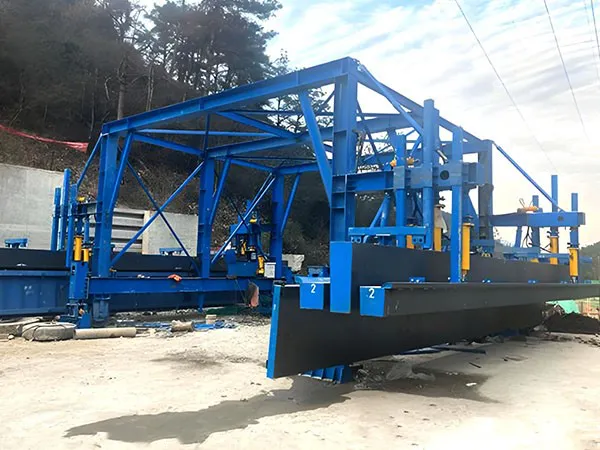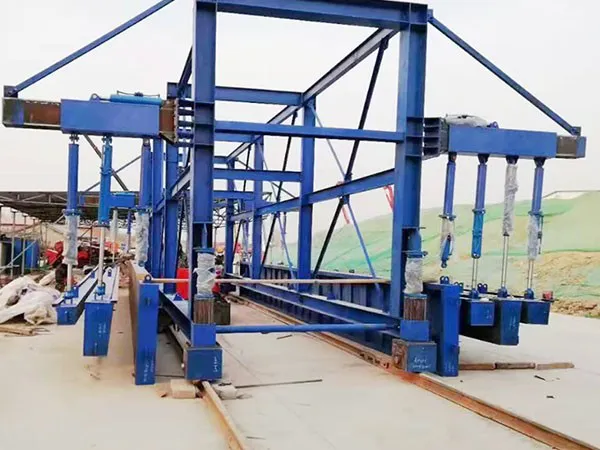While both steel and aluminum are used in the construction of tunnel lining trolleys, steel is generally considered more durable for this demanding application.

Higher Strength and Stiffness: Steel possesses significantly higher tensile and yield strength compared to aluminum. This allows steel trolleys to withstand the substantial loads and pressures exerted by wet concrete during the lining process without excessive deformation or failure. The inherent stiffness of steel also contributes to maintaining the precise shape of the tunnel lining formwork.
Better Resistance to Abrasion and Impact: Tunnel construction environments are often abrasive, with exposure to concrete, rock, and other materials. Steel offers superior resistance to wear and tear from abrasion and impacts, prolonging the lifespan of the trolley.
Weldability and Repair: Steel is readily weldable, which is crucial for fabrication and any necessary repairs that may arise during the operational life of the trolley. Welding allows for strong and reliable joints.
Cost-Effectiveness (Long Term): While the initial cost of an aluminum trolley might be lower, the superior durability and longer lifespan of steel trolleys often make them more cost-effective in the long run due to reduced maintenance and replacement needs.
Lighter Weight: Aluminum is significantly lighter than steel, which can be an advantage in terms of transportation and maneuverability of the trolley, especially in confined spaces.
Corrosion Resistance: Aluminum has good resistance to corrosion in many environments, which can be beneficial in damp tunnel conditions. However, steel can also be protected from corrosion through coatings and proper maintenance.
Lower Initial Cost (Potentially): Depending on the specific alloys and manufacturing processes, aluminum trolleys might have a lower initial purchase price compared to steel.

The primary function of a tunnel lining trolley is to act as a robust mold that can repeatedly withstand the heavy weight and pressure of wet concrete. The structural integrity and resistance to deformation are paramount for achieving accurate and safe tunnel linings. Steel's superior strength and stiffness make it better suited to handle these stresses over extended periods and under demanding conditions.
While the lighter weight of aluminum might offer some advantages in specific scenarios, the trade-off in strength and resistance to wear typically makes steel the preferred material for applications where durability and longevity are critical, such as tunnel lining trolleys.
Therefore, steel tunnel lining trolleys are generally more durable than aluminum ones due to steel's higher strength, stiffness, and resistance to abrasion and impact.
Gaofei
Address: 200m east of tulip garden, group 12 of zhangling community, hongshan street office, hongshan town, xigong district, Luoyang
Tel: +8616638856888
Contact: Gaofei Huang
Mobile: +86-18637923976
Phone: 0379-80881719/ 0379-60162687
QQ: 286827457
E-mail: gaofei@gf-bridge-tunnel.com